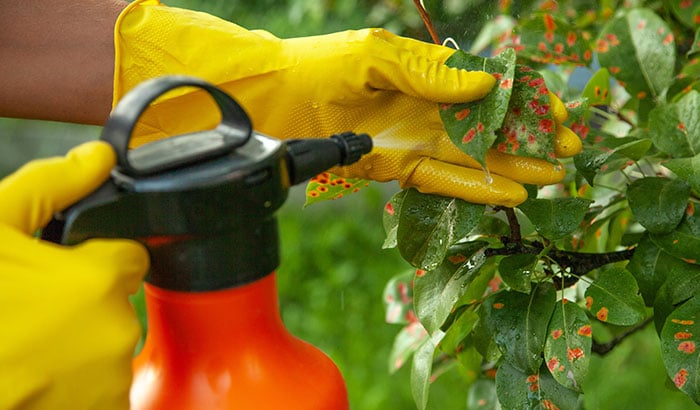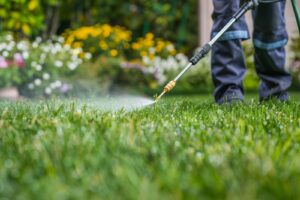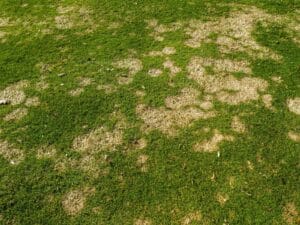As you spray for pests inside or around your home, you must know how to keep your beloved animals safe from these toxic chemicals.
Although pesticides are an excellent way to get rid of pesky bugs on your property, they have the potential to hurt your pets if they are not stored or used properly.
Today, we’re sharing tips on how to keep your animals safe while simultaneously keeping unwanted pests out.
Can Pesticides Harm My Pet?
Pesticides are used to eliminate, repel, prevent, and control pests. They can be used in a variety of places, such as inside or outside of the home, in the yard, in the garage, on plants, and more. While these products can be very beneficial, they can harm pets if used improperly.
The severity of health problems that can emerge from exposure depends on the toxicity of the pesticide, how much your pet is exposed to, and the type of animal it is. They can be exposed to the product through ingestion, breathing, or absorbing it through their skin.
Always Read the Product Label
To minimize the risk of harm to your pet, you should always read the entire product label before spraying any pesticides. Since these products are evaluated by the EPA for safety and usage rates, this information is always readily available on the product container. This will give you specific guidance about where the product can or cannot be applied, how much should be used, and how often it can be re-applied. Following these directions is for the safety of people and animals alike.
Remove Animals from the Area
Even if the pesticide seems harmless to use around animals, it’s better to be safe than sorry. You should always remove your pets from the area, in addition to their toys, bedding, food, and water. If you have a fish tank or cage without a lid, cover it up as well.
Wait for the Insecticide to Dry
When you spray for pests, take note of the areas that are being treated. It’s vital to keep your animals away from these areas until the pesticide is completely dry. If you’re using the product indoors, ventilate the area to promote suitable drying and airflow.
What to Do If Your Pet Is Exposed to Pesticides
Your animal’s symptoms will depend on the amount of pesticide they have been exposed to, but might include:
- Difficulty breathing
- Vomiting
- Diarrhea
- Shaking
- Constricted pupils
- Muscle weakness
- Seizures
If you suspect that your pet has been poisoned, contact your veterinarian immediately or call The Animal Poison Control Center. APCC is available 24 hours a day and 365 days a year.
Let Summit Lawn and Pest Control Help
For the safest and most efficient way to spray for pests, contact the experts at Summit Lawn & Pest Control for assistance. We have a passion for providing fast and affordable home lawn care and pest control services so you can focus on enjoying your yard instead of worrying about bugs and insects.Reach out today to schedule your free assessment! We serve Lehi, Orem, Provo, Spanish Fork, and other cities in Utah County, Utah.







